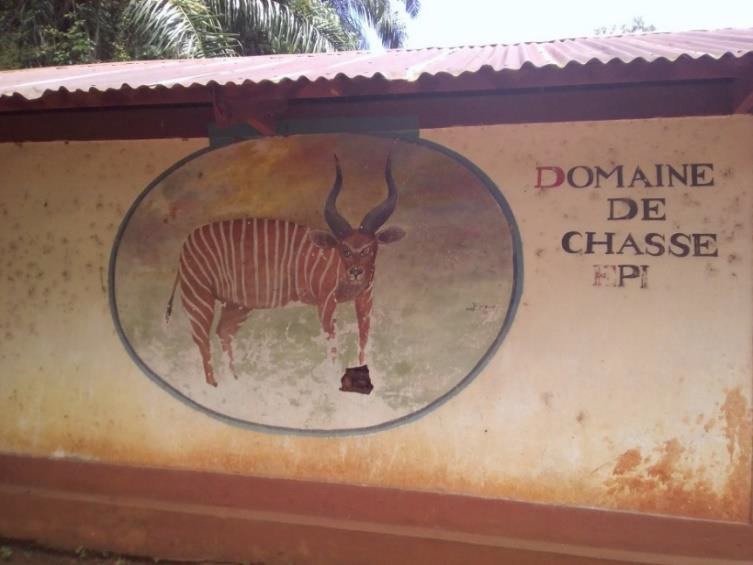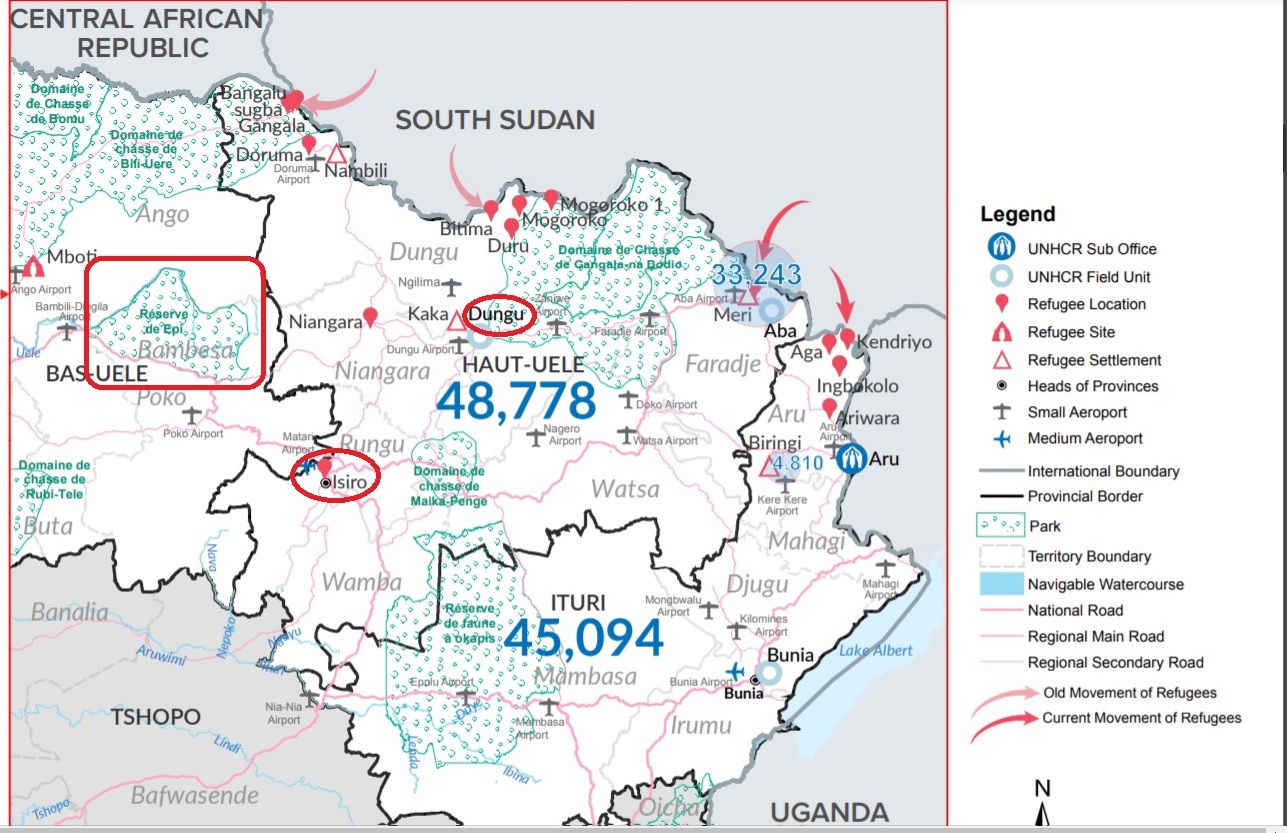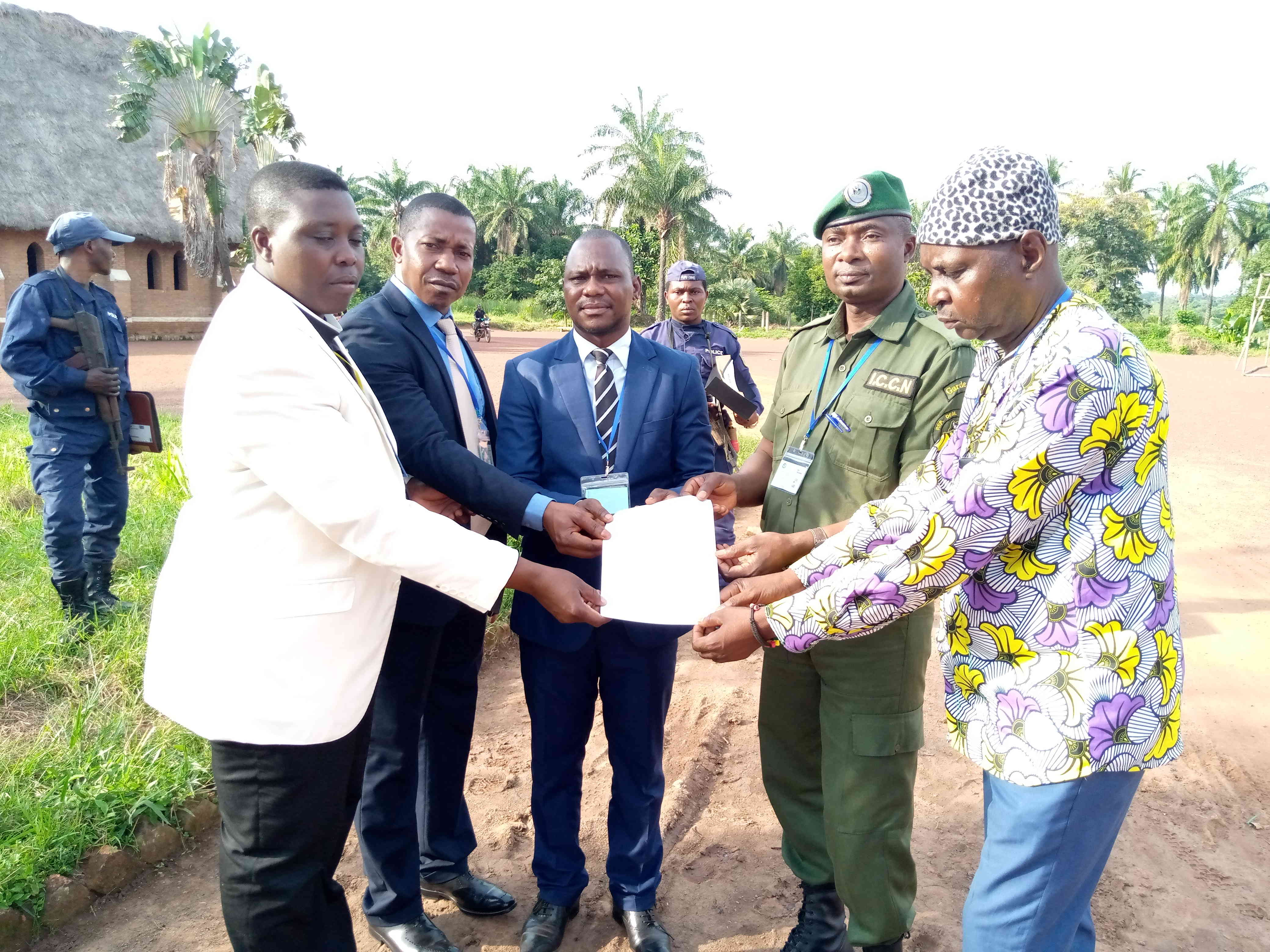
What does a conservation program have to do with improving access to education? Programs that focus on preserving endangered species, managing forest resources, and protecting wildlife can generate positive economic activity in communities, which in term reduces poverty and improves living conditions. Better management of wildlife and forest resources also supports sustainable land-use planning. The flow on effect is a stronger economy and the development of future resource security in communities.
The objective of this program in collaboration with DRCongo partners is to reclassify the Epi forest (which was a Hunting Reserve 20 years ago) into multi-faceted areas to support, for example, community foresty, a protected area for the passage of large migrating animals, and zones to manageTranshumance Pastoralism.
Currently the Epi forest is identified as a hunting reserve and is accessed by local communities in Kembisa Sector, which includes Epi, Mamili and Amadi. It also borders on the sector of Abarambo and the Madi and Mabanga chiefdoms. The reserve is approximately 9,000 Km2. Around 30 years ago trophy hunting was conducted in this reserve for a number of years by two local entrepreneurs running a Safari company Uéré-Safari, which brought international hunters to the area to specifically hunt the rare Bongo Antelope.

The Epi Reserve has been abandoned for approximately 15 years and during this period we know the area is threatened by:
- Poaching, local and international;
- Illegal fishing;
- Deforestation;
- Fragmentation of habitats for emblematic protected species;
- Armed groups.
In addition the Epi Reserve is strategically placed between two other reserves Bili-Uéré to the north and Rubi-Tele to the south, which provides a corridor to support large animals to pass from north to south.
To launch this program a historic meeting was held on August 24/25 2020 between the local Chiefs and leaders of the area, his Excellency the Provincial Minister of the Environment, Nature Conservation and Sustainable Development of Bas-Uélé, Mr Floribert INGA BEBU; Principle of the l’Institut Congolais pour la Conservation de la Nature (ICCN) and Chief Curator Bili- Uéré Reserve, Mr Romain DYANDOGHERE; Administrator of Poko Terrority, Mr Kambili SEBE Jr; and DRCongo RainShine Administrator, Abbé Jean de dieu MIMBUGBE. The outcome of the meeting was the signing of a Free Informed Act of Consent outling a framework for future co-operation for this program.
We are now seeking to conduct a fauna and flora survey of the Epi forest. While we have a broad scope for the survey, the Red Colobus monkey (Piliocolobus oustaleti) and the Bongo (Forest Antelope – Tragelaphus eurycerus) are special targets for the survey. Both animals are iconic to the Kembisa area and they are both on the IUCN Red List of Threatened Species.

Data from the survey will be used to guide our programs and projects and to provide information to the Bas-Uele Provincial Government so that we can work together to establish the conservation program and to implement strategies to manage the threats to the Epi forest.